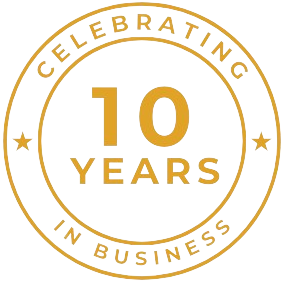When I’m not traveling on-site to our corporate clients or speaking at events, I’m right here. This is my home office. And the home office, it’s situated downstairs, right next to the door where my daughter Reese happens to walk past when she comes home from school each day. So we have this little routine. Reese will come in if she knows I’m not on a call, she’ll drop her backpack, grab a snack, and she comes right here into the office and sits just off to the side of my desk.
There’s this lime green comfy chair in the corner, that’s where she sits. And we have a whole conversation about what her day in eighth grade looked like that day. I get to hear everything from friends, boys, school, teachers, the whole gamut. Basically, everything that reminds me why I never want to go back to junior high school!
But one day she was sharing with me about what she was learning in history, and she said, “Today we talked about abolitionists.” I quickly said, oh, somebody who’s against slavery, to which Reese quickly says, “No mom, to be an abolitionist you can’t just be against slavery – you have to take action. You have to actually be speaking out, be publicly taking action against slavery.” I thought that was fantastic, I hadn’t necessarily either remembered that being taught to me, or thought about it in that way. Well, literally a few days later, I’m at a women’s conference and the topic of allyship comes up. And it literally triggers for me that this is so much the exact same thing that Reese and I were talking about, in terms of abolitionists.
That allyship is not just about this awareness of wanting women to advance in leadership, but to truly be an ally, you have to take public action.
In order to call yourself an ally for women advancing in leadership, you must be publicly taking action to advance and accelerate them. So that’s what I’m bringing to you today. What does that look like in your organization? Are you an ally? Are you truly an ally? Are you taking public action to support? And this goes for both men and women. I would argue that most people in general, truly want to see women advance and accelerate in leadership. But what kind of public action are you taking?
And maybe your public action is to bring this conversation to others in your organization, about just what allyship truly means. It’s not enough to attend a conversation, or to say, yes, I support women. What are you proactively doing to truly be an ally? That’s what I want you to take. And what does that look like in your organization?
Because I would argue that each organization probably has a different level, strategy, or action that needs to be taken. So what works here in one organization may not necessarily work the exact same way. So what are you doing to publicly act, so that you are an ally? Are you bringing this conversation to others so they can think about that? What does it look like specifically in your organization? Let’s not just call ourselves allies through generic general support, let’s get into public action to truly create allyship in your organization!

